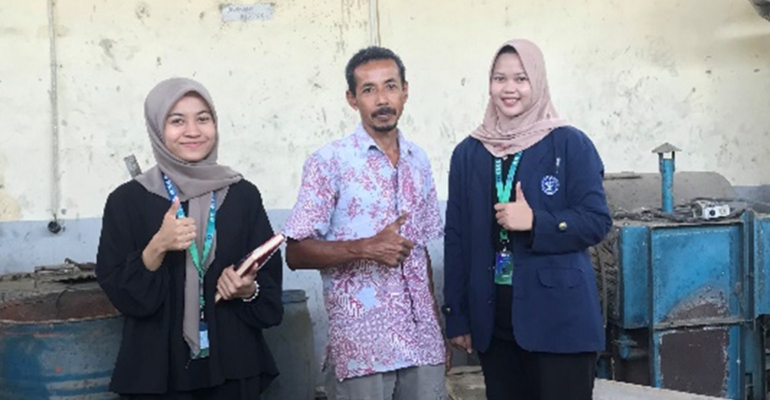IPB University PKM Team Identifies the Stalled Factory of Nyamplung Patutrejo Energy Independent Village Program

The Grew Up IPB University team in the Student Creativity Program for Social Humanities Research (PKM RSH) conducted a field visit to identify the cause of the stalled nyamplung seed processing plant in Patutrejo Village, Grabag District, Purworejo, Central Java.
This nyamplung seed processing plant was part of the Desa Mandiri Energi (DME) program in 2009. The program aims to create an energy-independent community through processing nyamplung into biofuel (fuel oil).
The nyamplung-based DME program in Patutrejo was originally the realization of an idea by Prof Sudrajat (Forest Products Research and Development Centre, Ministry of Forestry) in collaboration with the Ministry of Energy and Mineral Resources (ESDM). The program was inaugurated on December 6, 2009 in Patutrejo village and was attended by Prof Sudrajat, Zulkifli Hasan (Minister of Forestry), Prof Budi Laksono (researcher), Bibit Waluyo (Governor of Central Java), local and village government representatives, Wana Lestari Forest Village Community Organization (LMDH) and the local community.
The team’s investigation revealed that the factory had not been in operation for a long time after the DME plant broke down in early 2010. However, surprisingly, all the tools and machines for operating the nyamplung seeds were still in place despite being covered in corrosion and dust.
Barino, the former person in charge of nyamplung oil production who accompanied the IPB University students, said that one of the causes of the stalled DME in Patutrejo was because the machine was damaged and unable to process nyamplung seeds anymore.
“Another fact that we found is that the machine used to extract nyamplung seed oil is not suitable, because the screw press machine that has been used is actually designed to process Jatropha seeds. That is why people are confused that nyamplung seeds do not release oil from the process,” said Fenty Wurni Asih, one of the team members.
Fenty said that the continuation of the DME program is expected to make it easier for the community to independently produce nyamplung oil for biofuel. In addition, production activities running in the factory can increase income and expand employment, and can create new renewable energy that is environmentally friendly.
Anggi, another team member, is of the view that despite the fact that the program failed and ended up being stalled, if it is possible for DME to come back in the future, evaluation and improvement must be carried out massively and intensively. “This is important in order to create DME in accordance with the expected output,” he said. (FWA/Rz) (IAAS/RUM)



